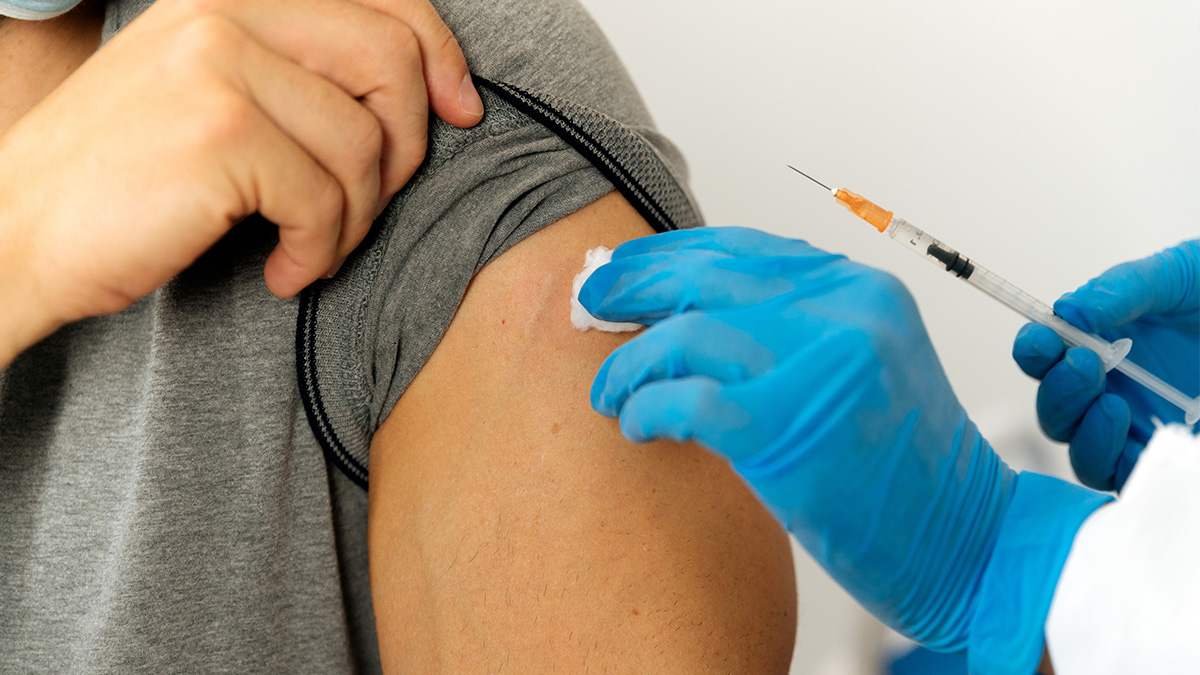Key points
- Hepatitis A is a highly contagious virus that spreads through person-to-person contact or consuming contaminated food or drink.
- Certain groups are at increased risk for infection, including international travelers, people experiencing homelessness, people who use drugs, and men who have sex with men.
- Vaccination is the best way to prevent hepatitis A.

Overview
Hepatitis A is a highly contagious liver infection caused by the hepatitis A virus (HAV). In most cases, people who have hepatitis A get better within 2 months.
How it spreads
HAV is found in the stool and blood of people who are infected. HAV is spread in several ways.
Person-to-person contact
You can get hepatitis A by using drugs with, caring for, or having certain types of sexual contact with someone who is infected with HAV.
Eating contaminated food or drink
You can also get hepatitis A by ingesting contaminated food or drink. HAV can contaminate food during growing, harvesting, processing, handling, and even after cooking. It's also possible for hepatitis A to contaminate water.
Although uncommon, foodborne outbreaks can occur in the United States from people eating contaminated fresh or frozen food products.
Who is at risk
Although anyone who hasn’t already been vaccinated or previously infected can get hepatitis A, certain life circumstances and behaviors can increase your risk of infection.
Some people are at higher risk for hepatitis A. This includes:
- International travelers.
- Men who have sex with men.
- People who use or inject drugs (all those who use illegal drugs).
- People whose jobs increase the risk of exposure, such as those who work with HAV in a lab.
- People who anticipate close personal contact with an international adoptee.
- People experiencing homelessness.
Certain health conditions, including chronic liver disease and human immunodeficiency virus (HIV), also make it more likely that people will experience severe complications from hepatitis A.
Prevention tips
Hepatitis A vaccine is the best way to prevent HAV infection. Practicing good hand hygiene can also prevent the spread of hepatitis A
Vaccination
The best way to prevent getting infected is by getting vaccinated. The following people should be vaccinated against hepatitis A:
Children
- All children ages 12–23 months.
- All children and adolescents 2–18 years of age who have not previously received hepatitis A vaccine (known as "catch up" vaccination).
People at increased risk for hepatitis A
- International travelers.
- Men who have sex with men.
- People who use or inject drugs (all those who use illegal drugs).
- People whose jobs increase the risk of exposure, such as those who work with HAV in a lab.
- People who anticipate close personal contact with an international adoptee.
- People experiencing homelessness.
People at increased risk for severe disease from hepatitis A infection
- People with chronic liver disease, including hepatitis B and hepatitis C.
- People with HIV.
Other people recommended for vaccination
- Pregnant people at risk for hepatitis A or at risk for severe outcome from hepatitis A infection.
- Any person who requests vaccination.
If you have been exposed to HAV in the last 2 weeks, talk to your doctor. They can give you a single shot of hepatitis A vaccine within 2 weeks of exposure that can help prevent you from getting sick. There is no danger in receiving the vaccine again if you aren’t sure if you ever got it. Depending on your age and health, your doctor might also recommend a treatment called immune globulin.
Good hygiene
Practicing good hand hygiene can also prevent the spread of hepatitis A. Thoroughly wash your hands with soap and water after using the bathroom, caring for someone with an infection, changing diapers, and before preparing or eating food.
Why prevention is important
Most people get better from hepatitis A within 2 months, but it can cause liver failure or even death for older adults and those with other health issues like chronic liver disease.
Almost anyone can get the safe and effective hepatitis A vaccine and prevent serious complications.
Traveling
Before traveling internationally, it’s important to talk with your doctor about your vaccination status since there are some countries where hepatitis A is more common.

While handwashing is important while traveling, the best way to prevent an infection is through vaccination. If you can’t get vaccinated (either due to age or allergic reactions), immune globulin can help reduce the risk of infection for up to 2 months.
